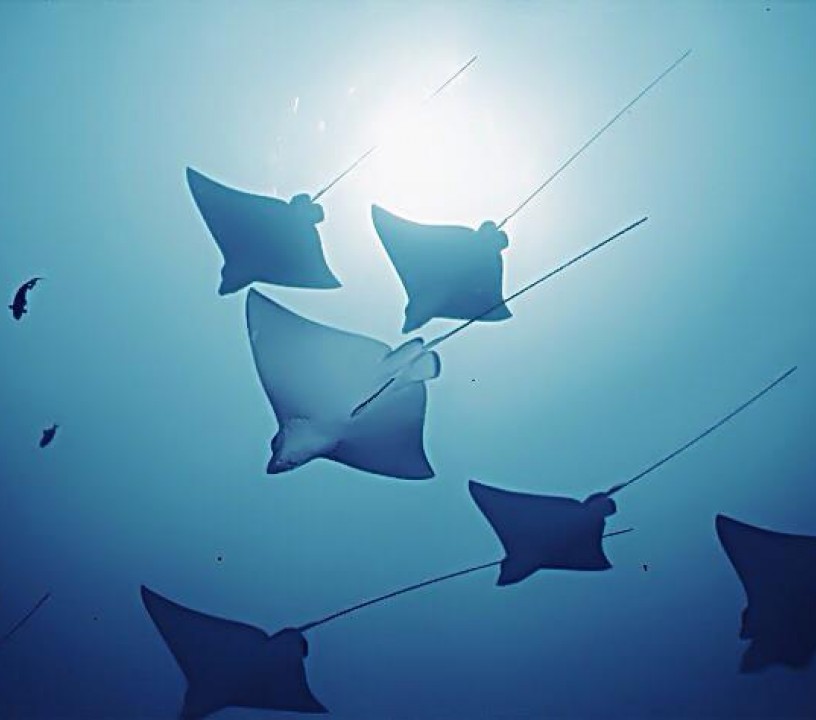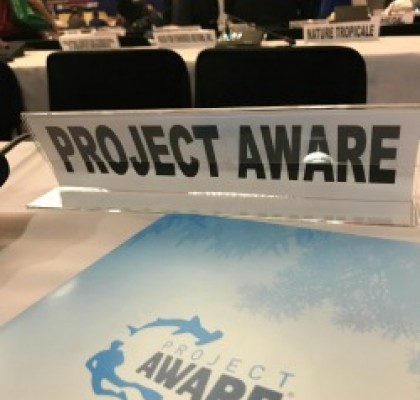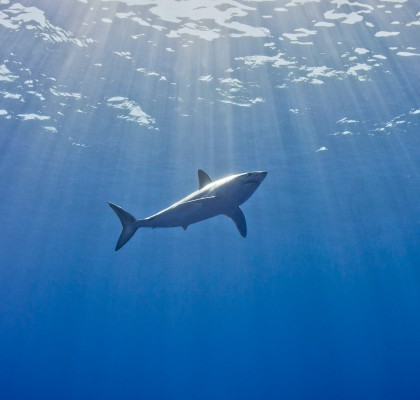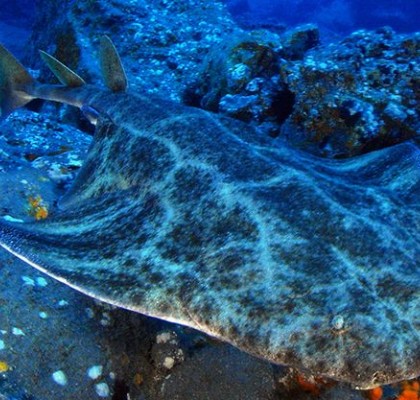
Migratory Sharks and Rays
The Issue
The Convention on Conservation of Migratory Species of Wild Animals (CMS) holds the potential to improve the outlook for migratory sharks and rays in trouble. Yet concrete actions by member countries to protect listed species from their biggest threat - overfishing - are seriously lacking.
Several countries have protections for sharks and rays in place. But many species travel great distances, often crossing national boundaries. International cooperation is vital to help ensure the survival of the vulnerable migratory species.
CMS, also known as the Bonn Convention, provides a global platform for the conservation and sustainable use of migratory animals and their habitats When implemented, this international wildlife treaty can trigger national actions to protect listed species and help advance international cooperation necessary for effective protection and management of migratory species, including the 34 species of sharks and rays currently covered by the agreement.
Whale Shark photo courtesy of Simon J Pierce

What We're Doing
Project AWARE is committed to making sure that CMS contributes to a brighter future for vulnerable, migratory sharks and rays.
We advocate for the implementation and enforcement of international protections for migratory shark and rays under the Convention on Migratory Species of Wild Animals (CMS) and the CMS Sharks Memorandum of Understanding (CMS Sharks MoU), the only global conservation agreements dedicated to protecting migratory shark and ray species.
Through the CMS Shark MoU and associated Conservation Plan, signatories agree to facilitate a better understanding of shark populations and fisheries, set science-based catch limits, prevent “finning” (slicing off a shark’s fins and discarding the body at sea), protect critical shark habitats, and cooperate toward shark conservation through international fisheries and wildlife bodies.
-
facilitate a better understanding of shark populations and fisheries
-
set science-based catch limits
-
prevent “finning” (slicing off a shark’s fins and discarding the body at sea)
-
protect critical shark habitats
-
cooperate toward shark conservation through international fisheries and wildlife bodies.
-
In 2011, Project AWARE supported a proposal to list the globally threatened giant manta ray under CMS Appendices.
-
In 2014, we ran a sharks and rays without borders campaign to help secure the listings of additional 22 shark and ray species under CMS and spur national conservation action. Project AWARE, working with partners, delivered 28,804 letters from our supporters to decision-makers urging collaboration on the conservation of the proposed species.
-
In 2016, Project AWARE became a Cooperating Partner to the CMS Sharks MoU. We urged Signatories to take immediate, concrete action to fulfill CMS obligations for listed species,
In 2017, at the CMS CoP12, we expressed our concerns about the lack of concrete action taken to date for CMS listed shark species and joined our conservation partners in putting up a side event “Making CMS Work for Sharks: Spotlight on Mako Sharks” to highlight the immediate opportunities to end uncontrolled fishing of these CMS listed species in the North Atlantic. We are committed to encouraging the 125 CMS Parties to fulfill their obligations for listed shark and ray species through prioritization, education, advocacy, and capacity building.
How You Can Help
Together, we create a powerful, collective voice to influence change. You can support our global conservation work.
While listing additional shark and ray species on CMS Appendices is a step in the right direction, many countries are yet to transpose the CMS agreements into their national, enforceable legislation. Without such action, the CMS species listings will remain toothless. Here's how you can help:
- Stay tuned for the latest news and updates
- #MakeTime4Makos
- Make a donation
- Help protect migratory marine species from the onslaught of marine debris



